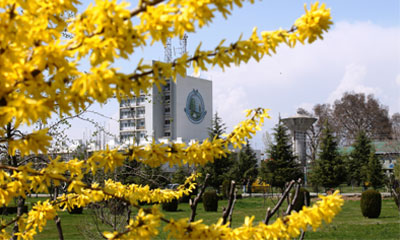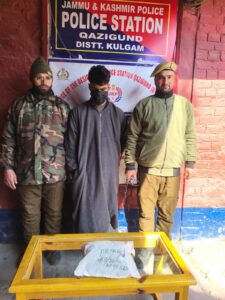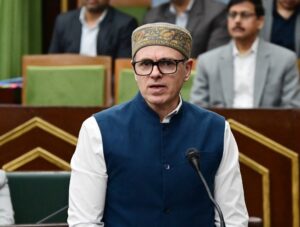Kashmir University Faces One Lakh Penalty for Wrong Evaluation

SRINAGAR: The Jammu and Kashmir and Ladakh High Court imposed a penalty of one lakh on the University of Kashmir for wrongly and arbitrarily applying a statute, forcing a student to reappear for an examination he had already passed.
Invoking the Public Law Doctrine a bench of Justice Javed Iqbal Wani observed, “.. the illegality and arbitrariness on the part of the respondents is manifest and writ large, besides being patently wrongful, undoubtedly constituting a fit case for grant of compensation in favour of the petitioner and the Court being conscious of the fact that there is no quantification based on actual loss, but then the award of damages to the petitioner payable by the Respondent-University is in Public Law”.
The case involved Abdul Basit, a 19-year-old student from Bandipora, who appeared for his BA 5th Semester Examination. Initially, Basit was shown to have failed the General English paper with 27 marks, against a passing mark of 38. Upon obtaining a xerox copy of his answer sheet, Basit discovered that one of his answers had not been evaluated.
https://chat.whatsapp.com/HLQ520fE0PL4oQAtzTjX2Z
He later applied for re-evaluation, and his marks increased to 40. However, the University scaled down his marks to 34 based on a statute, rendering him failed once more.
Representing Basit, Bhat Fayaz Ahmad argued that the university’s actions were arbitrary and infringed on Basit’s legal and fundamental rights. He contended that the university failed to rectify its initial error and unjustly applied a rule to reduce Basit’s marks, forcing him to reappear for the exam.
On the other hand, the University, represented by Syed Faisal Qadri and Asif Maqbool, admitted the increase in Basit’s marks upon re-evaluation but justified the reduction based on Statute 10 of the University’s re-evaluation rules. They maintained that the issue had been resolved as Basit had subsequently passed the exam in a fresh attempt.
After considering the rival contentions Justice Wani highlighted that both the original and amended versions of Statute 10 did not apply to Basit’s case as the same pertains to cases where there is a significant discrepancy in marks between the original evaluation and re-evaluation, requiring a third examiner.
“A bare perusal of the aforesaid Statute would manifestly tend to show that same did not in any manner apply to the case of the petitioner having regard to the issue pertaining to the paper in question… the respondents admittedly have applied the Statute to the case of the petitioner arbitrarily and illegally and in the process have acted unreasonably and unfairly having resulted into substantial and grave prejudice to the petitioner”, the bench remarked.
Referencing the principles of public law compensation as established in United Air Travel Services v. Union of India (2018) 8 SCC 141 Justice Wani emphasised on public law remedies to penalise wrongdoers and uphold citizens rights reiterating,
“The purpose of public law is not only to civilise public power but also to assure the citizens that they live under a legal system which aims to protect their interests and preserve their rights.”
The court concluded that the university’s actions were patently wrongful and constituted a fit case for public law compensation. Consequently, it directed the University of Kashmir to pay Basit one lakh in damages within four weeks, failing which the amount would accrue interest at 6 percent per annum.





